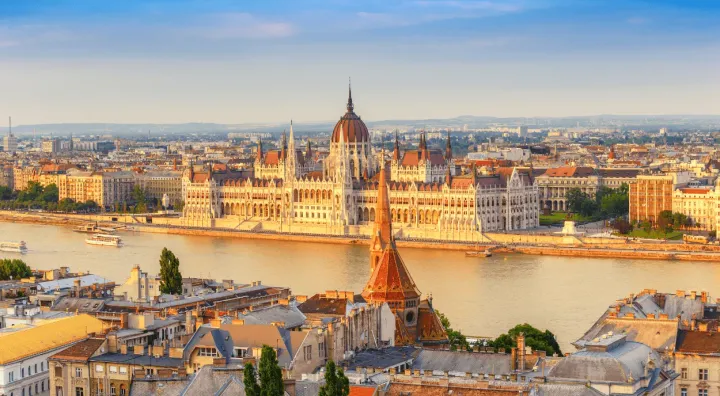Italy Digital Nomad Visa: Requirements and How To Apply

Imagine working on your laptop with a view of Rome's ancient rooftops or taking a video call from a quiet café on the Amalfi Coast.
For digital nomads, this dream is now within reach thanks to Italy's new Digital Nomad Visa, granting a whole year to experience la dolce vita (with the option to renew!).
This article is your guide to everything you need to know about this permit, including eligibility criteria, how to apply, and even insider tips to experience the best of Italy as a digital nomad.
Ready to blend your work life with the magic of Italy? Let's dive in and make this dream a reality!
Quick Visa Facts
Visa validity period
Up to one year
Possible to extend?
Yes
Who can apply?
Non-EU citizens who are highly qualified remote workers for companies located outside Italy
Minimum Income Requirements
Roughly 28,000 USD annually
Cost of visa application
125 USD
Time for visa applications
N/A
Does Italy Have a Digital Nomad Visa?

Yes, Italy does have a digital nomad visa. After much anticipation, this visa was finally approved and signed into law in March 2024 as part of the "Decreto Sostegni Ter" legislation. This exciting development opens doors for remote workers from outside the EU who dream of experiencing the rich culture and vibrant lifestyle of Italy while conducting their business online.
Benefits of Italy's Digital Nomad Visa
There are several advantages of obtaining Italy's Digital Nomad Visa:
- Live in Italy for a Year (with Renewal Option): The visa offers a one-year stay in Italy, with the possibility of an extension.
- Bring Your Family: Unlike some digital nomad visas, this one allows you to bring close family members with you.
- Favorable Cost of Living (Outside Main Cities): Many regions in Italy offer a lower cost of living compared to other major European destinations.
- Excellent Infrastructure: Italy has dependable internet in most cities and even smaller towns, so you can work remotely with confidence.
- Access to the EU: As a visa holder, you can travel freely throughout the Schengen Area, providing the opportunity to explore other European countries.
- Unlimited Permits: Italy's Digital Nomad Visa isn't subject to annual quotas like some other work visas, making it a potentially more accessible option.
- Potential Path to Residency: While this visa doesn't directly guarantee a permanent stay, it could be a great first step in that direction if you're interested in putting down roots in the country.
Who Can Apply for Italy's Digital Nomad Visa?

To be eligible for Italy's Digital Nomad Visa, you must meet the following requirements:
- Non-EU Citizen: This visa is specifically designed for those living outside of the European Union.
- Highly Qualified Remote Worker: The program targets "highly qualified" remote workers. While the Italian authorities haven't released an official job list yet, a range of professions could be applicable, from experienced tech workers to online entrepreneurs.
- Remote Work for Outside Entities: Your work must be remote, meaning you'll be working for a company, clients, or your own business located outside of Italy.
- Minimum Income Requirement: You must demonstrate a monthly income exceeding €2,335, which translates to roughly €28,000 annually. This is based on a minimum threshold of three times the Italian national minimum wage.
- Health Insurance: Comprehensive health insurance valid in Italy is mandatory.
- Criminal Background: As with most visa programs, you'll need to provide a clean criminal record.
How to Apply for Italy's Digital Nomad Visa as a Digital Nomad

To apply for Italy's Digital Nomad Visa, you have to follow these steps:
Step 1: Gather Required Documents
You should collect all necessary documents before starting your application. The complete list of documents required to submit your application can be found in the section below.
Step 2: Schedule a visit to the Italian consulate
Once your paperwork is in order, you'll need to book an in-person appointment at an Italian consulate in your country of residence. They'll have you fill out the official visa application, take your paperwork, and you'll pay a visa fee (usually around $125).
Step 3: Wait for Approval
Then comes the waiting game – it could take a few weeks, maybe even a few months, to hear back about your visa approval.
Step 4: Get your official resident permit
Once your visa is approved, you have 8 days after arriving in Italy to apply for a residence permit, also known as permesso di soggiorno. Pick up a "Yellow Kit" at any post office, fill out the forms inside, and return the kit to the post office. They'll handle getting it to the right authorities, and you'll get a date to go in for fingerprinting and other checks so they can issue your permit.
Documents Required for Applying for Italy's Digital Nomad Visa
To apply for Italy's Digital Nomad Visa, you need to submit the following documents:
- Valid Passport: Your passport must be valid for at least three months beyond your intended stay in Italy and have at least two blank pages.
- Passport-Sized Photos: Typically two recent, color passport-sized photographs. These must meet specific size and quality requirements.
- Proof of Employment: Either contracts with clients outside of Italy demonstrating ongoing work or a letter from your employer (registered outside of Italy) confirming your remote work status.
- Proof of Income: Bank statements, tax returns, or other documents that show you meet Italy's minimum income requirement, which is roughly around €28,000 annually.
- Health Insurance: Comprehensive health insurance with coverage valid in Italy throughout the duration of your stay.
- Proof of Accommodation in Italy: A rental agreement, hotel reservation, or other documentation demonstrating suitable lodging arrangements in Italy.
- Criminal Background Check: A clean criminal record certificate from your home country or country of residence may be required.
How Much Does Italy's Digital Nomad Visa Cost?

At this time, there's no definitive answer for the exact overall cost of Italy's Digital Nomad Visa. However, here's a potential breakdown based on what we know so far:
- Application Fee: There will be a standard non-refundable application processing fee. This fee could be similar to other Italian visa application fees, which are often around $125.
- Residence Permit Fee: If your application is successful, you might pay an additional fee for the issuance of the residence permit itself.
- Administrative Fees: Expect additional costs for document translation, notarization, and potential postal charges for submitting your application.
Timeline for Applying For Italy's Digital Nomad Visa
Unfortunately, a precise timeline for applying for Italy's Digital Nomad Visa isn't available yet. However, you can expect a processing time of several weeks or possibly months to hear back about your visa approval.
What if I’m Not Eligible for Italy's Digital Nomad Visa as a Digital Nomad?
If you're not eligible for Italy's Digital Nomad Visa, there are several alternatives to consider for staying in Malaysia:
- Self-Employment Visa ("Visto per Lavoro Autonomo"): If you have a viable business plan and can demonstrate financial resources, you could investigate Italy's self-employment visa. Note that this is often a more demanding process than a digital nomad visa.
- Elective Residency Visa: For those with substantial passive income or savings, Italy's Elective Residency Visa might be an option. It requires proof that you can support yourself without working in Italy.
- Other Digital Nomad Visas: Many European countries have or are developing digital nomad visas. Research programs in Portugal, Spain, Croatia, and others to see if their requirements might be a better fit.
Paying Taxes as a Digital Nomad in Italy

Paying taxes as a digital nomad in Italy can be complex. Here's a breakdown of the key factors you need to consider:
Tax Residency
If you spend more than 183 days (half the year) in Italy, you might be considered a tax resident, who is liable for Italian taxes on her or his worldwide income.
Italy has also double taxation agreements with several countries to prevent you from paying taxes twice on the same income. Ensure you check if your home country has such an agreement with Italy.
Income Tax
Italy uses progressive income tax rates, ranging from 23% to 43% based on your income level. Some regions also have regional income taxes. Italy's Digital Nomad Visa might offer special tax benefits or reduced tax rates.
Social Security Contributions
If you're self-employed, expect to pay social security contributions in Italy. The exact rates will depend on your income and specific circumstances.
VAT (Value-Added Tax)
You may need to register for VAT in Italy if your business activities reach a certain threshold.
Are You Ready To Apply For The Italian Visa For Digital Nomads?
If you want more digital nomad guides like these, sign up for our free newsletter and get upcoming articles straight to your inbox!
You can also follow us on Instagram and join our Facebook Group if you want to get in touch with other members of our growing digital nomad community!
We'll see you there, Freaking Nomads!
Freaking Nomads is supported by you. Clicking through our links may earn us a small affiliate commission, and that's what allows us to keep producing free, helpful content. Learn more







 Travel tips, hacks, and news
Travel tips, hacks, and news Exclusive travel discounts
Exclusive travel discounts Offers and promotions
Offers and promotions Digital nomad inspiration
Digital nomad inspiration Latest articles form our blog
Latest articles form our blog
Comments ()